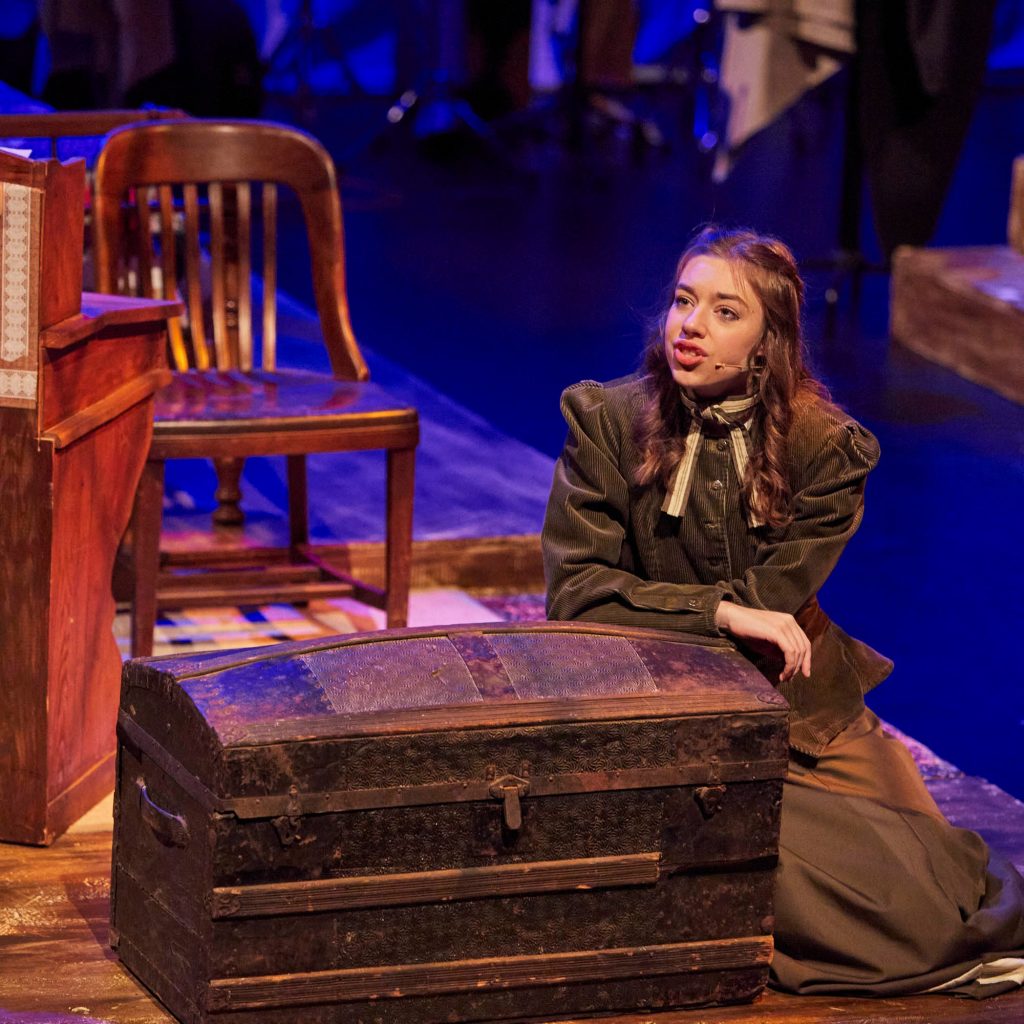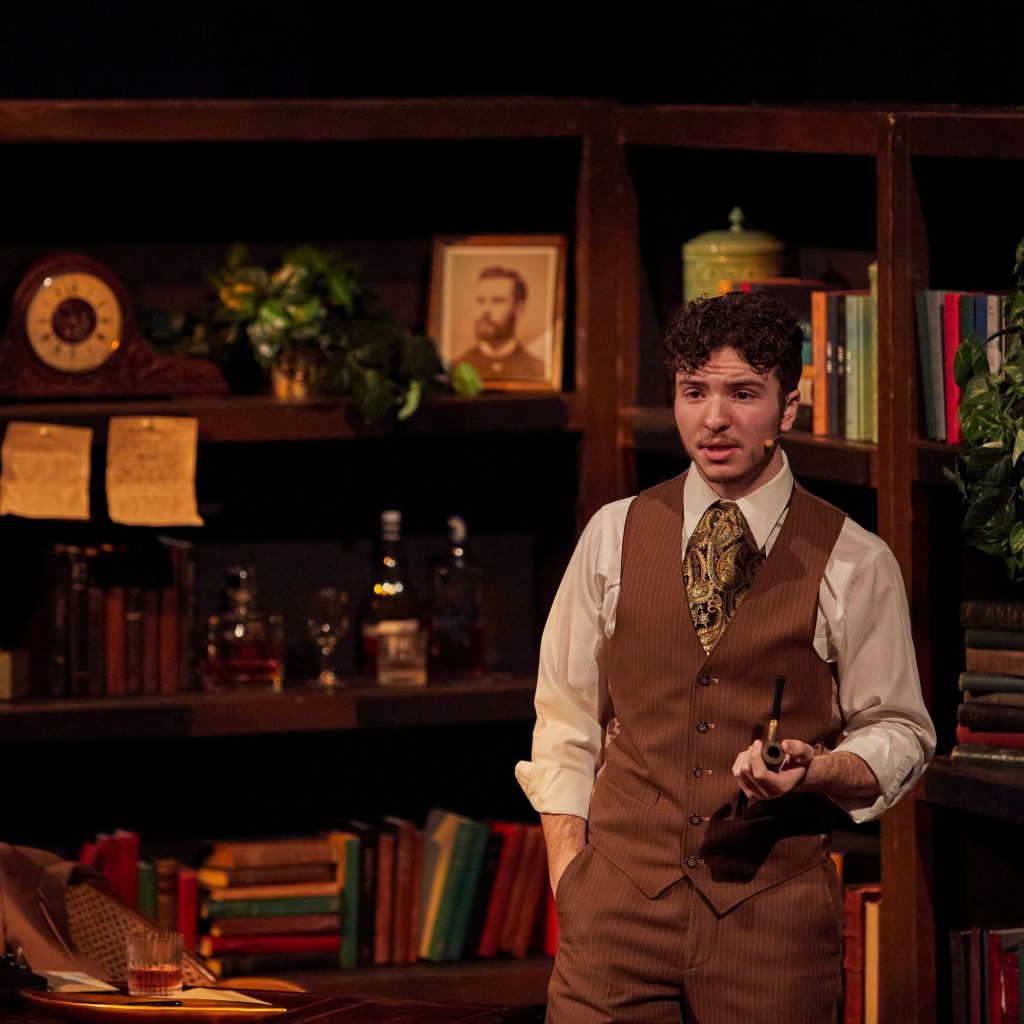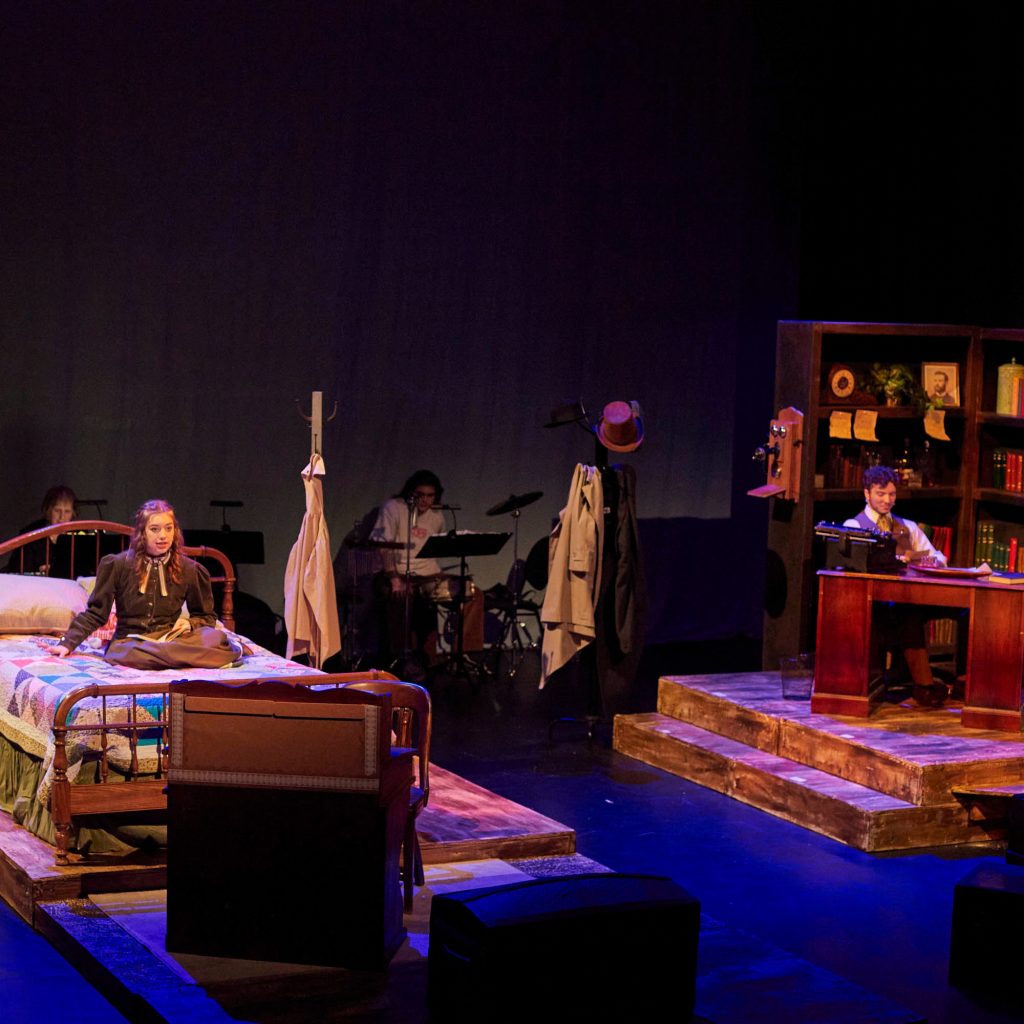Reflections on “Daddy Long Legs” (with spoilers)
by Lauren Nichols
I have to be honest and confess that I enjoy having a break from directing, especially when I can deputize such a capable guest director as Mary Beth Frank. One thing I have appreciated with our current show is the leisure to think about the story and its significance.
On its face, it is a gentle coming-of-age novel and a quiet romance. The original book is no more than this, in my opinion. John Caird’s book for this musical has added a great depth and interest to what was a very one-sided novel. In the book by Jean Webster (1912), which is composed entirely of Jerusha Abbott’s letters to her anonymous benefactor, we don’t have any way to know what his reaction is to her frequent, quirky and ebullient writing. The inevitable denouement revealing his identity is sweet, but overly simple.
On stage, we get to see HIS side of the story, his angst over whether and how to tell her who he really is. There is a true moral dilemma in his prolonged deception. Charity, he observes, “builds walls that can’t be climbed from either side.” He is forced to question his motives in helping this young woman. And he finds that her happiness is more important to him than his own. He delays again and again, concerned that he will distract her from her educational and career goals. Only when she has graduated (the song, “Fighting Back the Tears” is one of my favorite moments) and published her first novel, does he act on his love for her. Can you think of any contemporary story where someone stands aside–for years–rather than introducing romance into a relationship, solely for the sake of the one they love?
It is this self-sacrificing aspect of the story that I find most surprising and appealing. When Jervis finally proposes to Jerusha (oh come now, what did you think was going to happen?), she turns him down. She feels it’s wrong for an unknown orphan to ally herself with such a noble pedigree. “My family could be just awful, you know?”
Honesty finally brings together two people who are–surprisingly–eminently suitable for one another. And their mutual love, respect, and self-denial are a solid foundation for a long and happy life together. The audience’s satisfied enthusiasm for this production suggests to me that it is long past time for a return to stories which feature self-denial and restraint…in this writer’s humble opinion, far more romantic elements than immediate chemistry and throwing caution (and morals) to the wind.
Buy tickets to one of the final three performances HERE!



